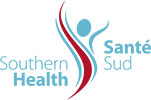Non-medically approved KN95 or Similar Respirators
Due to increased availability of non-medically certified KN95 or similar respirators, health care facilities are seeing an increase in the number of individuals wearing this type of mask upon arrival. The following memo provides direction regarding these masks.
Leads/Directors (or delegates) review and share accordingly.
Contact Tracing Changes
This communication is a summary of recent changes to Public Health case and contact management, which has implications for facilities/sites/programs.
For more detailed information please review the updated interim Public Health Guidance Document for the complete list of changes.
Summary of Changes:
Case Investigation
- All cases will be managed in the same way regardless of variant of concern (VOC) results, with the assumption that Omicron will quickly become the dominant strain.
- Regional Public Health will triage and send all cases to the Virtual Call Center (VCC) for initial case investigation, with the exception of the below cases which will continue to be managed under current processes:
- Clients that are in the hospital
- Clients in corrections
- Clients in PCH
- First Nations Clients
- VCC will conduct an abbreviated case interview, which includes guidance on identifying and notifying close contacts, and information on treatment and isolation.
Regional Public Health Management of exposures in high-risk settings:
- Priority is identification of exposures in high risk settings for transmission or severe disease (e.g. schools/daycares, health and community care facilities, congregate settings without occupational health/Covid-19 response (e.g. shelters, assisted living), and current outbreak settings. The VCC will refer back to the region all cases associated with these settings.
- Regional Public Health will be providing guidance on case and contact management in these settings, but will not follow-up on individual contacts. Contact notification will be the responsibility of these settings, which may occur through notification letters or other pre-existing processes. Programs and facilities will be responsible for notifying any patients/clients/residents who are named close contacts through an exposure while receiving health services or visiting in our sites/facilities.
- IP&C will continue to investigate staff cases for any work associated contacts. Staff contacts are notified by IP&C/Occ Health, but will no longer be sent to Public Health for entry in PHIMS.
- Resources to assist with notification are available.
Contact Notification and Active Monitoring is Discontinued
Contacts will no longer be notified by Public Health. Cases will be advised to notify contacts in settings such as household, social settings, group settings, and workplaces not identified as high-risk settings. Cases will be referred to the website for directions on contact notification. Active monitoring of cases will no longer be provided. Cases will be advised to seek care if symptoms worsen, or call Health Links Info Santé. For cases who are in hospital or residents of PCH, the facility/site should direct the patient/client/resident (or their alternate decision-maker) to notify the individual’s contacts using the letter located on this website.
Self-isolation (quarantine) is recommended for close contacts, unless exempt, for 10 days. They should continue to self-monitor for symptoms for an additional four (4) days.
Close contacts, are recommended to be tested once between 5 to 7 days after the last exposure to the case.
Asymptomatic fully vaccinated close contacts, although exempt from self-isolation (quarantine), are also recommended to be tested once between 5 to 7 days after the last exposure to the case.
All SH-SS staff should continue to contact Occupational Health as per below
Leads/Directors (or delegates) review and share accordingly.
Occupational Health Screening Continues for All Staff
Employee occupational health screening has not been affected by the changes to Public Health contact tracing in the community setting. Resident/client/staff who test positive will still require contact tracing. Staff who have tested positive for COVID-19 should continue to contact our regional Occupational Health line at 204-332-0176 during regular business hours or the Provincial Occupational Health Screening line at 1-888-203-4066 on weekends and stat holidays.
Employees should contact Occupational Health for the following:
- If you receive positive test results
- Return to work screening after testing positive
- For questions or clarification when uncertain of changing processes
Please find the updated COVID-19 Employee Occupational Health Screening Poster on the HPS.
Leads/Directors (or delegates) review and post / communicate with all staff.
Monoclonal Antibody Treatment - Final Documents
In follow-up to the December 21st Call to Action, the following documents are now finalized:
- Standard orders
- Drug Monograph
- Preparation procedure - Casirivimab-Imdevimab
Leads/Directors (or delegates) review and share accordingly.
Important PPE Reminders
COVID-19 activity is on the rise and we are closely monitoring the Omicron variant. We expect
case numbers and hospitalizations to increase in the coming days and weeks, particularly
following the holiday season when many gatherings are expected, driving increased transmission
across the province.
We recognize the fatigue and frustration that exist amongst health-care workers as we prepare to
once again ramp up our capacity and effort as much as possible. It is essential that you take all
steps to keep yourselves (and our patients, clients and residents) healthy and safe.
A memo detailing PPE reminders and the most common breaches related to PPE is available.
Leads/Directors (or delegates) review and share with all staff.
Info Sharing
Media Release

